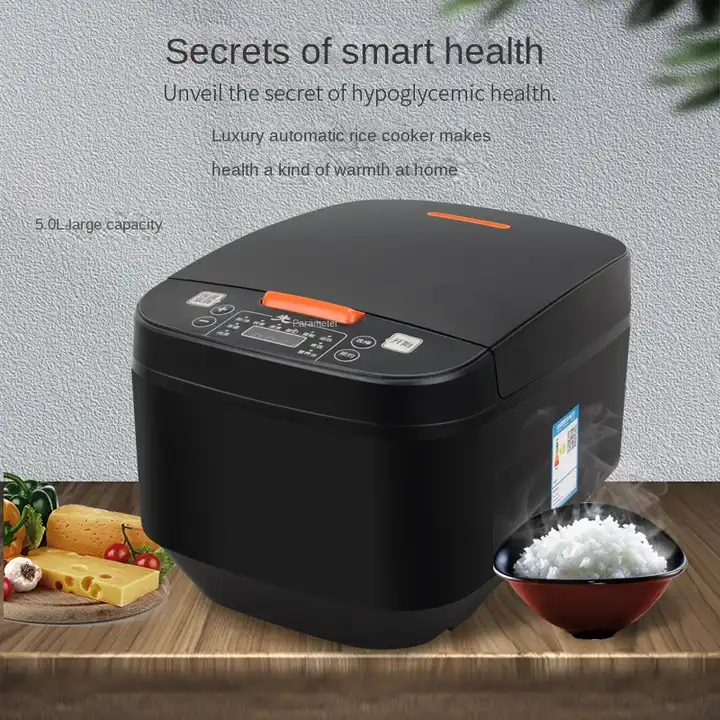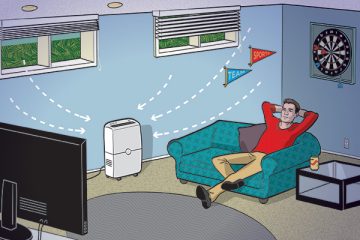“Is multi cooker healthy ?” This question often arises among health-conscious individuals seeking convenient cooking solutions.
Cooking has never been more convenient and health-conscious than with the rise of multi cookers. These versatile kitchen appliances are engineered to provide a multitude of cooking methods, from steaming and boiling to sautéing and slow cooking, all while often requiring less oil than traditional cooking methods.
Nutritionist Jessica Smith explains,
“By using a multi cooker, you can cook meals with less added fat, which can contribute to a healthier diet overall.”
This contributes to a healthier diet by preserving more of the food’s natural nutrients and cutting down on added fats. Multi cookers not only support well-balanced meal preparation but also encourage homemade rather than processed food consumption. The ease of use, combined with their capacity to maintain a food’s integrity, makes multi cookers a desirable choice for health-minded individuals. Ideal for busy lifestyles, they streamline the cooking process, making healthy eating achievable even for those with the most packed schedules.

Table of Contents
ToggleWhat Is A Multi Cooker?
A multi cooker is a versatile kitchen appliance. It can perform the functions of various cooking devices. These include a rice cooker, pressure cooker, and slow cooker. Its compact nature makes it perfect for every kitchen.
Considering the features of a multi cooker, they excel in user-friendliness. Many have digital controls and preset programs. This makes cooking simple and quick. They often come with timer functions and keep-warm settings. Thus, meals are ready when you are.
Exploring the benefits of using a multi cooker:
- Healthier meals: Cooks with less oil and keeps nutrients locked in.
- Convenience: Replaces multiple appliances and saves space.
- Easy to clean with non-stick surfaces.
- Saves energy by cooking efficiently and quickly.
- Safe to use, with built-in safety mechanisms.
Nutritional Value Of Food Cooked In A Multi Cooker
One of the key benefits of cooking with a multi cooker is that it allows for quick and efficient cooking of a wide variety of ingredients. This can be a huge time-saver for busy individuals looking to prepare healthy meals at home. Additionally, the pressure cooking function of multi cookers has been shown to help retain more nutrients in food compared to traditional cooking methods.
According to nutritionist Sarah Johnson,
“Pressure cooking helps to preserve the vitamins and minerals in food, making it a healthier option for meal preparation.”
The nutritional value of food is vital for health. A multi cooker can preserve more nutrients during cooking. Traditional cooking often leads to vitamin loss. Multi cookers use steam and pressure. This saves vitamins that water or high heat would destroy.
Vegetables retain their color and texture better. Meats cooked in multi cookers keep more juices and tenderness. Remember, not all multi cookers are the same. Choose wisely to cook healthy meals. Using a multi cooker can be a smart choice for a busy life.
Furthermore, cooking with a multi cooker often requires less oil and fat compared to other cooking methods such as frying or deep-frying. This can help reduce the overall calorie and fat content of meals, making them a healthier option for those looking to maintain a balanced diet.
Health Considerations
While multi cookers can be a valuable tool for cooking healthy meals, there are some considerations to keep in mind to ensure that you are making the most of this kitchen appliance. One important factor to consider is the types of ingredients you are cooking with. It is important to choose fresh, whole foods whenever possible and to limit the use of processed or high-sodium ingredients. Additionally, incorporating a variety of fruits, vegetables, whole grains, and lean proteins into your meals can help ensure that you are getting a well-rounded and balanced diet.
Another health consideration when using a multi cooker is the cooking temperature and time. Overcooking food can lead to a loss of nutrients, so it is important to follow recommended cooking times and temperatures for different ingredients.
Nutritionist Rachel Williams advises,
“Be mindful of the cooking times for different foods when using a multi cooker. Overcooking can lead to a loss of nutrients, so it is important to pay attention to cooking instructions and adjust as needed.”
A Multi Cooker reduces the need for extra oil or fat. This makes meals healthier. The controlled temperature settings help cook food evenly. This means the food won’t get too hot or burn. Natural flavors are kept because of the steady heat. This keeps your food tasty without adding more spices or salt.
These cookers are versatile and provide many options. You can steam veggies, make soups, or even bake. Each method lets you make food that is good for you. People looking to eat better find this helpful. They can try different recipes. It’s easy to have a balanced meal with a Multi Cooker.
Risks And Precautions
While cooking with a multi cooker can be a convenient and healthy option, there are some risks and precautions to keep in mind. One potential risk is the use of non-stick coatings in some multi cooker models. These coatings can release harmful chemicals when heated to high temperatures, so it is important to choose a multi cooker that is made with safe and non-toxic materials. Additionally, it is important to follow proper maintenance and cleaning instructions to ensure that your multi cooker is safe to use.
Understanding the risks of chemical leaching in multi cookers is crucial. Certain materials can release harmful substances into food. This happens at high temperatures during cooking.
Another potential risk when using a multi cooker is the possibility of overcooking or undercooking food. It is important to carefully follow recipes and guidelines for cooking times and temperatures to ensure that your meals are cooked properly and safely.
Nutritionist Emily Jones warns,
“Overcooking can lead to a loss of nutrients and undercooking can pose risks of foodborne illness, so it is important to follow cooking instructions carefully.”
It’s essential to select BPA-free multi cookers for better health. BPA stands for bisphenol A. It is a chemical that can mess with your body’s hormones. BPA-free products decrease the risk of this exposure.
Maintaining your multi cooker is key to its safe use. Follow the manufacturer’s instructions to clean and maintain your appliance. Regular maintenance prevents food buildup. Buildup can cause material degradation, which might increase chemical leaching risks.
Recipes And Tips For Healthy Cooking With A Multi Cooker
Eating healthy is easy with a multi cooker. Create low-calorie and low-fat meals without sacrificing taste. Split your paragraph here for readability. Optimal nutrition comes from whole grains and lean proteins.
- Steam veggies to retain nutrients and minimize oil use.
- Cook chicken breast or fish for high-protein, low-fat options.
- Use herbs and spices to flavor dishes instead of salt.
- Portion quinoa, brown rice, or barley as hearty sides.
To reduce sodium, swap out canned goods for fresh ingredients. Rinse beans and lentils if using canned versions. Seek sodium-free seasonings to enhance your meals. Remember, small changes lead to significant health benefits.
Tips for using your multi-cooker
Here are some more specific and technical tips for using a multi cooker safely:
-
Check the seals and valves: Before each use, inspect the seals and valves of the multi cooker to ensure they are in good condition and not damaged. Faulty seals or valves can lead to steam leaks or pressure malfunctions.
-
Venting and releasing pressure: When cooking under pressure, always follow the manufacturer’s instructions for venting and releasing pressure properly. Do not attempt to force open the lid when the cooker is pressurized as this can be dangerous.
-
Avoid overfilling: Overfilling the cooker can cause liquid to spurt out during cooking, leading to burns or damage to the cooker. Follow the recommended fill levels specified in the user manual for each cooking function.
-
Use the correct accessories: Only use accessories and replacement parts that are recommended by the manufacturer. Using incompatible accessories can compromise the safety and performance of the multi cooker.
-
Keep the exterior dry: Make sure the exterior of the multi cooker remains dry at all times, and avoid spills or splashes on the control panel or electrical components to prevent electrical hazards.
-
Unplug when not in use: When the multi cooker is not in use, make sure to unplug it from the power source. This reduces the risk of accidental starts and electrical hazards.
-
Beware of hot surfaces: The outer surfaces of the multi cooker can get hot during cooking. Always use oven mitts or gloves when handling the cooker, especially when moving it or adjusting settings during or after cooking.
-
Regular maintenance: Periodically check and clean the vents, valves, and other components of the multi cooker to ensure they are free from debris or blockages. This helps maintain the cooker’s efficiency and safety.
Comparison To Other Cooking Appliances
Multicookers are a modern kitchen marvel, offering versatility and convenience that traditional stovetop cooking methods can’t match. One appliance can stew, sauté, steam, and more, meaning fewer pots and pans are needed. This reduces the need for excess oil, making meals inherently healthier. Consistent cooking temperatures avoid overcooking, hence preserving nutrients better.
Against deep fryers, multicookers present a substantial health advantage. Deep fryers submerge food in oil, increasing calorie density. Multicookers can achieve similar crispy textures without relying on large amounts of oil. Comparing to air fryers, multicookers still win with broader functions. Healthier meals are possible without sacrificing taste or texture.
Expert Opinions On The Healthiness Of Multi Cookers
“Multi cookers can be a great tool for healthy cooking as they allow for easy preparation of whole food ingredients like grains, beans, and vegetables without the need for added fats or oils. This can help individuals maintain a healthy diet by reducing the consumption of processed foods high in unhealthy fats and sugars.”
Nutritionists highlight the benefits of using multi cookers for preparing healthy meals. Many experts agree that these versatile kitchen devices can help preserve nutrients through their controlled cooking temperatures and sealed environments. Studies suggest that the steaming function of multi cookers is particularly beneficial, as it maintains the integrity of vitamins and minerals in food, which might otherwise be lost in traditional cooking methods.
“While multi cookers can be a convenient option for meal preparation, it’s important to be mindful of the ingredients used in recipes to ensure they contribute to overall healthiness. Using lean proteins, whole grains, and plenty of vegetables in multi cooker recipes can help individuals create nutritious meals that support their health and well-being.”
On the other hand, health professionals often recommend multi cookers for their convenience and ability to discourage eating out. As home-cooked meals tend to be lower in calories and additives, multi cookers can contribute to an overall healthier lifestyle. Fitness experts also underscore the importance of multi cookers in meal planning, which is a crucial part of dietary control and weight management.

Final Verdict: Is A Multi Cooker Healthy?
A multi cooker stands out as a healthy kitchen appliance. It preserves nutrients and reduces the need for oils and fats. It’s an eco-friendly choice, cutting down on energy use. Meals cooked in a multi cooker are often healthier than those prepared by other methods. To ensure a healthy lifestyle, combine multi cooker meals with balanced nutrition and regular physical activity.
Moreover, this time-saving gadget offers sustainable benefits. It allows for varied cooking techniques, from steaming to slow-cooking. This versatility means you can cook a wide range of healthy dishes. Plus, the convenience factor makes it easier to prepare home-cooked meals. So, embracing a multi cooker could be a step towards a healthier and more sustainable lifestyle.
Frequently Asked Questions On Is Multi Cooker Healthy
Are Multi Cookers A Healthy Cooking Choice?
Multi cookers can be a healthier cooking option as they often require less oil and preserve more nutrients. They use steam, pressure, or slow cook methods that reduce the need for added fats, maintaining the natural flavors and nutritional value of ingredients.
Is Cooking With A Multi Cooker Time-efficient?
Yes, multi cookers save time by cooking food quicker through high-pressure settings. They also offer hands-free cooking, allowing you to prepare meals while doing other activities. Meal prep becomes more efficient compared to traditional cooking methods.
How Does A Multi Cooker Differ From Frying?
A multi cooker uses steam, pressure, or slow cooking, reducing the need for oil unlike frying. This results in lower calorie meals. It offers various cooking methods, making it more versatile and healthier than conventional frying.
Can Multi Cookers Help In Weight Management?
Multi cookers support weight management by facilitating the cooking of whole, unprocessed foods with minimal fat. The versatility in cooking methods allows for healthier meal prep that aligns with a balanced diet, aiding in weight control.
Final thoughts
Embracing a multi cooker in your kitchen could revolutionize your meal prep experience, contributing to a healthier lifestyle. Its versatility saves time and encourages home cooking, where you control ingredient quality. No doubt, multi cookers offer a blend of convenience and nourishment, proving to be a worthy culinary ally.
- Homvana Humidifiers Tested and Reviewed: Quiet, Efficient, and Aromatic - December 6, 2024
- FULMINARE H13 True HEPA Air Filter Review: Air Purifiers for Bedroom - December 4, 2024
- Best Air Purifiers for Mold Under $100: Affordable Solutions for Clean Air - December 3, 2024


